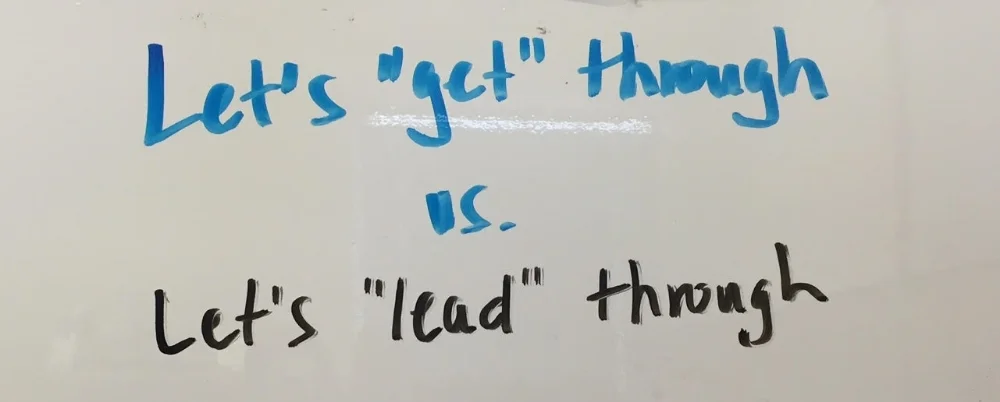There is always something challenging facing any organization. There is always something to "get through." Nathan Eklund discusses a common reaction to these stressors and how these situations are opportunities to lead.
The reality is that for some of my time, I work in sales. When I’m talking to someone with whom we might work, I really am selling two things:
1. The notion that how you treat people is central to your success.
2. If you want to improve about how people feel about coming to work, you should hire us.
I don’t state this cynically. It’s just the truth.
Amongst all the reasons someone might shy away from doing the work or at least delay it, I hear the phrase “once we get through…” all the time.
“Once we get through this renovation…”
“Once we get through this contract negotiation…”
“Once we get through this round of budget cuts…”
The list goes on. But guess what? You want to know what stresses people and organizations out? You want to know what makes people wonder if maybe they need to leave to find something better? Things exactly like renovations, contract negotiations, and budget cuts.
To me, when I hear someone pull out the “once we get through” card I’m struck by how illogical the reasoning is behind the thinking. If we re-phrased these comments, they would inevitably sound like this: “I’ll manage people’s stress and our organizational chaos after people are the most stressed out because of our organizational chaos.”
Think about that.
So I want to challenge that thinking. What happens when we ban that language and that thinking? How do our behaviors alter via this sketch:
“Getting through” is passive, fearful, and ultimately inefficient leadership. It suggests that later you’ll lead. But for now you’ll just survive and hope.
“Leading through” is active, thoughtful, and ultimately efficient leadership. It doesn’t accumulate organizational stress, it reduces it. It doesn’t tax people with vague promises that things will be better later. Instead, leaders who “lead through” are dedicated to the place and the people precisely when they need leadership the most.
I can’t cite a historical or revered leader who ducked and covered during stressful times. Our aspirational leaders stepped up exactly when it was most difficult to do so.
So how about you and your organization? What are you “getting through”? What’s the impact that’s happening on people? What will it look like when you “lead through” these times?
Easy? No.
Right? Almost certainly.


